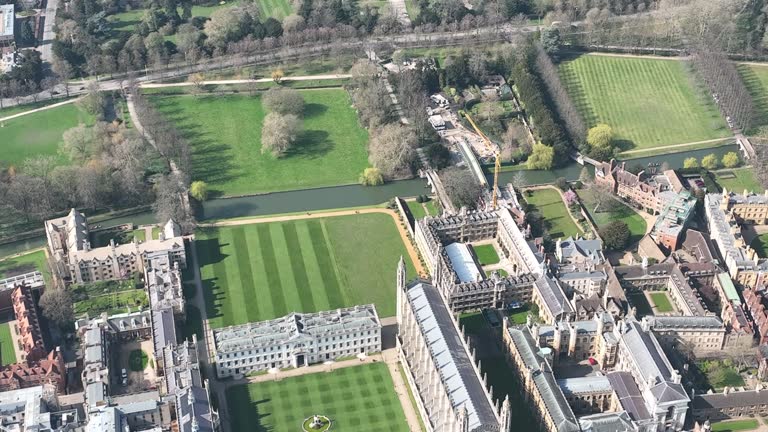University of Cambridge – UK: A Legacy of Academic Excellence and Innovation
Introduction
The University of Cambridge, founded in 1209, is one of the oldest and most prestigious universities in the world. Located in the historic city of Cambridge, England, it has shaped global education, science, and culture for over 800 years. Known for its rigorous academics, groundbreaking research, and distinguished alumni, Cambridge consistently ranks among the top three universities globally (QS, THE).
History and Heritage
-
1209: Founded by scholars fleeing Oxford after disputes with townspeople.
-
13th–16th Centuries: Evolved as a center for theology, law, and classical studies.
-
17th–18th Centuries: Key role in the Scientific Revolution (Isaac Newton’s laws of motion).
-
19th–20th Centuries: Expanded into modern sciences, humanities, and social sciences.
-
Today: A leader in AI, medicine, and sustainability research.
Academic Excellence
Cambridge is structured into 31 autonomous colleges and six schools:
-
Arts & Humanities
-
Biological Sciences
-
Clinical Medicine
-
Humanities & Social Sciences
-
Physical Sciences
-
Technology
World-Renowned Programs:
-
Natural Sciences (Physics, Chemistry, Biology)
-
Mathematics (Famous for the Mathematical Tripos)
-
Engineering & Computer Science
-
Economics (Cambridge Judge Business School)
-
Literature & Philosophy
Groundbreaking Research & Discoveries
Cambridge has been at the forefront of scientific and intellectual breakthroughs, including:
-
Isaac Newton’s Laws of Motion & Calculus
-
Discovery of the Structure of DNA (Watson & Crick, 1953)
-
Development of IVF (In Vitro Fertilization) (Robert Edwards, Nobel Prize 2010)
-
Advancements in AI & Machine Learning (DeepMind’s origins trace to Cambridge)
-
Climate Change Research (Cambridge Zero initiative)
Campus and Student Life
-
Collegiate System: Each college (e.g., Trinity, King’s, St John’s) has its own traditions, housing, and dining halls.
-
Key Landmarks:
-
King’s College Chapel (Iconic Gothic architecture)
-
The Cavendish Laboratory (Physics research hub)
-
The University Library (Over 8 million books)
-
-
Student Traditions:
-
May Balls (Lavish end-of-year celebrations)
-
Punting on the River Cam
-
Formal Hall Dinners (Black-tie meals in historic halls)
-
Notable Alumni & Faculty
Cambridge has produced 121 Nobel laureates, 47 heads of state, and 11 Fields Medalists, including:
-
Sir Isaac Newton (Father of Modern Physics)
-
Charles Darwin (Theory of Evolution)
-
Stephen Hawking (Theoretical Physicist)
-
Alan Turing (Pioneer of Computer Science)
-
John Maynard Keynes (Influential Economist)
-
Emma Thompson (Academy Award-winning Actress)
Why Cambridge Stands Out?
-
Tutorial System: Personalized teaching with experts in small groups.
-
Global Influence: Alumni have founded companies, governments, and movements worldwide.
-
Interdisciplinary Collaboration: Strong ties between sciences, arts, and industry.
Conclusion
The University of Cambridge remains a symbol of intellectual pursuit and innovation, blending centuries of tradition with cutting-edge research. Its impact on science, literature, and global policy makes it a dream destination for scholars worldwide.


